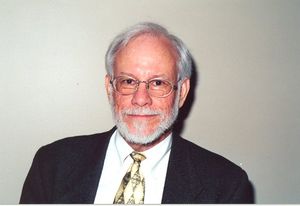Charles Sidney Burrus
- Birthdate
- 1934/10/09
- Birthplace
- Abilene, TX, USA
- Death date
- 2021/04/03
- Associated organizations
- Rice University
- Fields of study
- Signals
- Awards
- IEEE Jack Kilby Medal
Biography
Recognizing the promise of digital signal processing (DSP) long before most others, Charles Sidney Burrus helped move DSP from an obscure discipline to a key component of the information age by making important contributions to digital filtering and Fast Fourier Transforms (FFTs). Known for the ability to extend and explain difficult concepts in simple language, Dr. Burrus generalized the Cooley-Tukey algorithm (one of the most common FFTs) as well as prime factor algorithms (the preferred method for implementing FFTs of lengths other than powers of two).
His original work on methods to automatically generate code have been the basis for subsequent developments in Fourier transform computation, and recently his work on using FFTs to factor very high-order polynomials has been recognized as an alternative for phase unwrapping and determining the complex cepstrum of long data sequences. Dr. Burrus’ contributions to theory and design of digital filters include introducing the first direct design method for infinite impulse response digital filters, which is still in use today, and improving upon the Parks-McClellan algorithm for finite impulse filter design by developing a filter able to handle the very long lengths required by modern applications.
Dr. Burrus helped build Rice University’s reputation as a leading institution in the field, receiving Rice’s highest teaching award five times, and plays a key role in the “Connexions” project, a Web-based open-source textbook initiative for sharing signal processing educational materials. An IEEE Life Fellow, at the time of his death Dr. Burrus was the Maxfield and Oshman Professor Emeritus of Engineering at Rice University, Houston, Texas, where he had worked since 1965.
Further Reading
